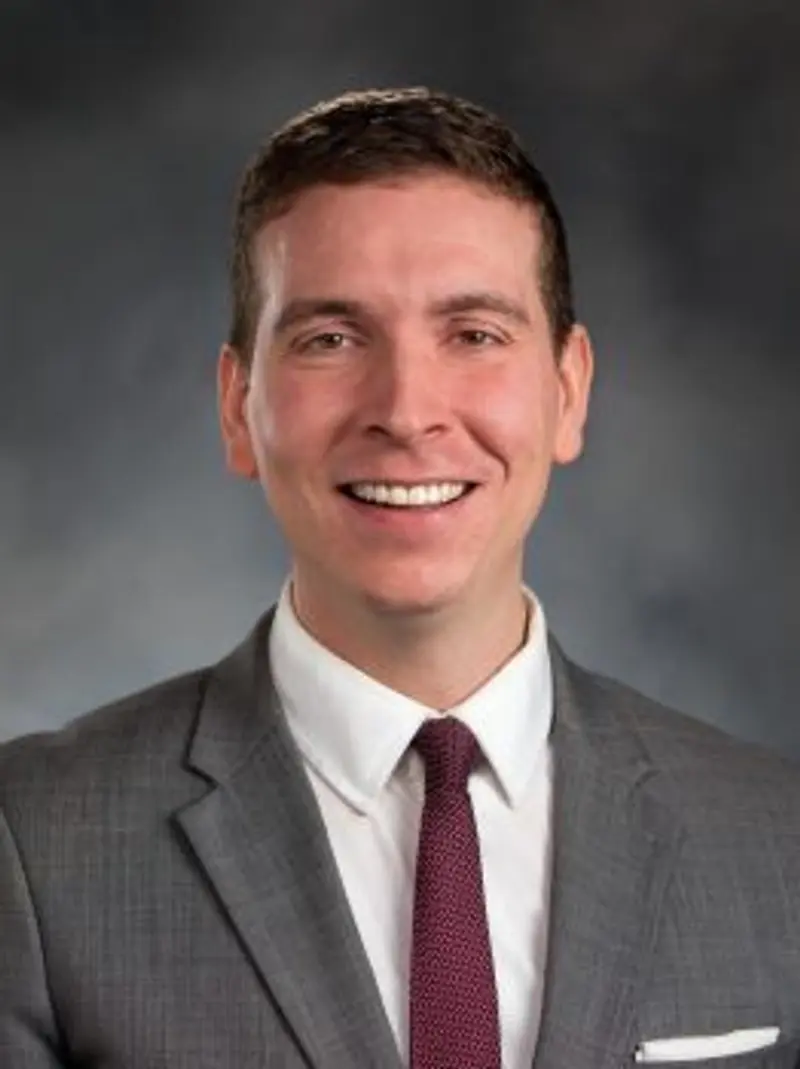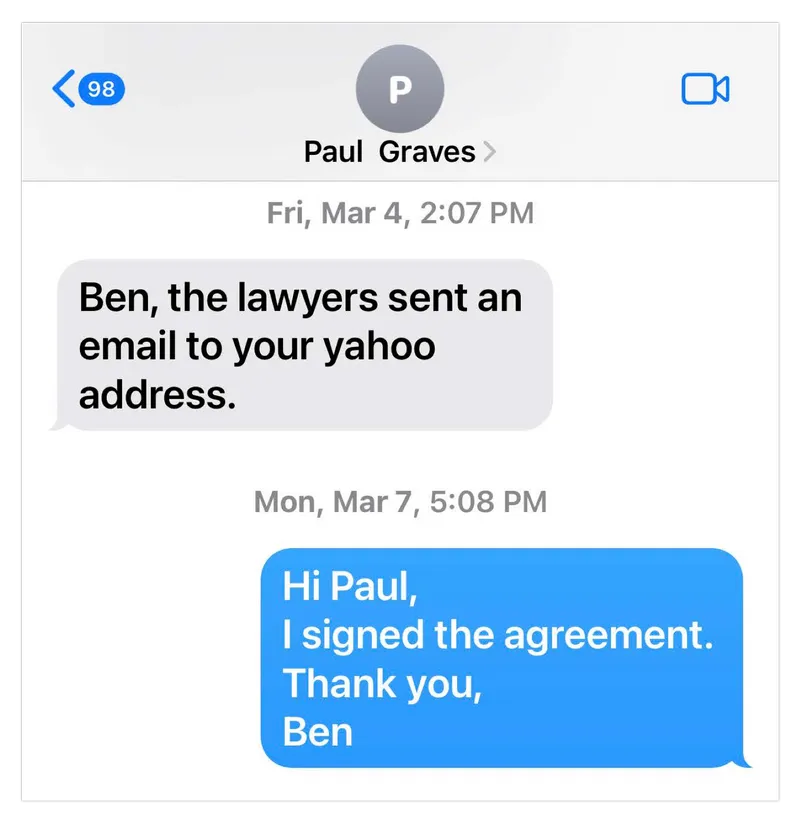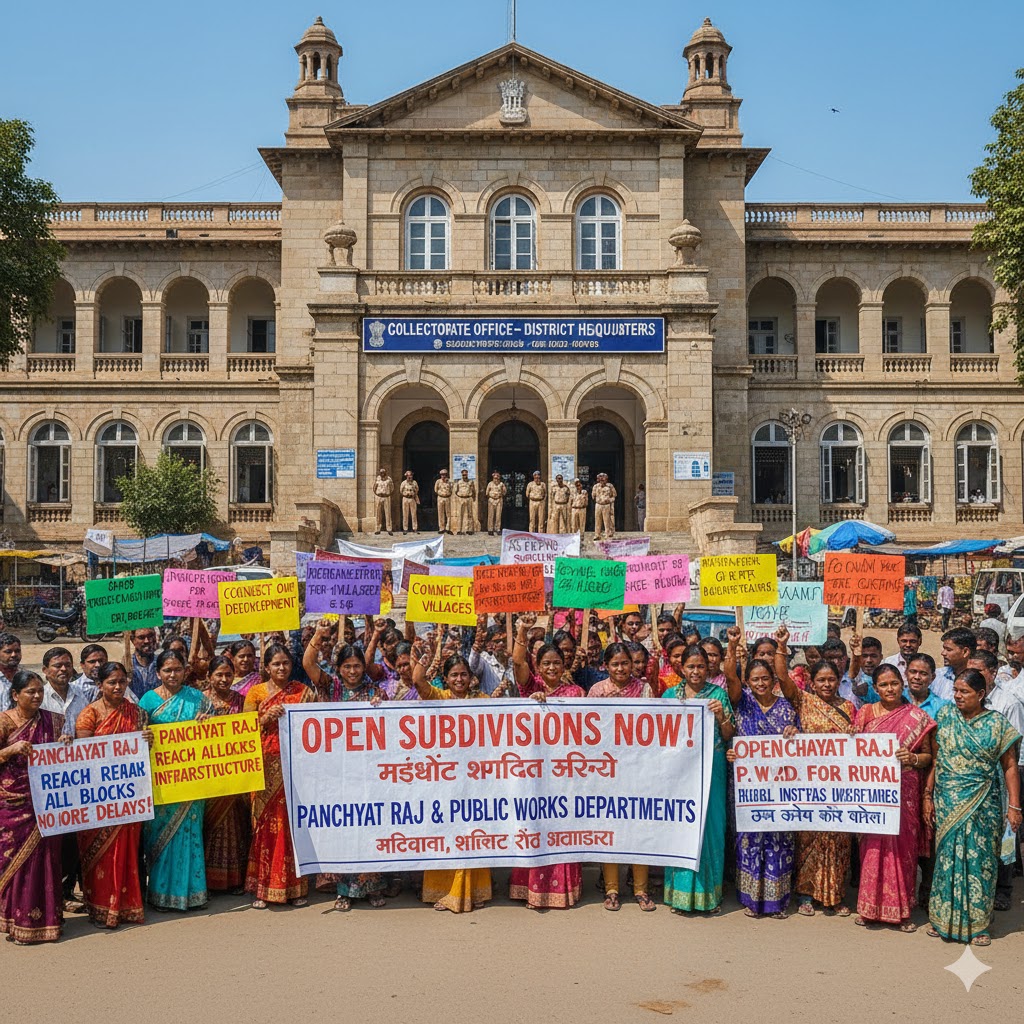Alex Mierjeski contributed research.
Republicans Hatched a Secret Assault on the Voting Rights Act in Washington State
Under legal pressure to address Wisconsin’s “Swiss cheese” and oddly shaped districts, the Legislature approved redrawn maps that promise to create a new dynamic in a state known for its pivotal role in national politics.

Republican Paul Graves’ work was about to come undone. In the wee hours of Nov. 15, 2021, he and his fellow Republican on Washington state’s independent redistricting commission had finally prevailed on their Democratic counterparts to agree to the maps voters would use in the upcoming election.
But then Latino voters sued the state, claiming the new legislative maps didn’t give them voting power commensurate with their population. Now, Graves worried, a federal judge was about to force the state to give Democratic-leaning Latinos more voting power.
With the balance of power in Washington up for grabs, he launched a covert attack. He consulted powerful state Republicans. He reached out to national Republicans, including the most influential conservative redistricting lawyer in the country, to discuss funding a lawsuit and get strategic advice. He conferred with a Seattle law firm. And he found a Latino congressional hopeful to act as the face of the lawsuit.
A countersuit was filed — against Graves’ own work. This suit made the opposite argument from the Latino group’s. Yes, the map that Graves and his fellow commissioners had created discriminated. But it had disadvantaged white people and other voters.
Sure enough, as Graves had foreseen, in August of last year the judge sided with the Latino plaintiffs. He determined the Yakima Valley map violated the Voting Rights Act, the landmark 1965 civil rights law that has been the bedrock of voting discrimination cases for over half a century. Section 2 of the VRA prohibits the creation of election districts that deprive voters of color of their full rights. The judge said the maps needed to be redrawn.
Having handed Latinos a win, the judge tossed the lawsuit that Graves had helped generate as moot. Undeterred, the legal team of Benancio Garcia, the Latino congressional hopeful, appealed all the way to the U.S. Supreme Court, asking it to block the new maps until it had weighed the merits of his claim. The court declined to take the case earlier this month, and it is unclear whether lawyers will now appeal to the 9th U.S. Circuit Court of Appeals.
Graves told ProPublica he wanted legal action that would slow down the court because he believed the plaintiffs were about to push through “a naked partisan gerrymander.”
“My singular goal, once a lawsuit was filed, was to defend the maps,” he said in a statement. His work is described in sworn depositions and court documents, including emails and other communications introduced as exhibits.
The Washington state salvo is merely one part of a yearslong national legal assault on laws and policies intended to prevent discrimination. In 2013, in a victory for right-wing activists, the conservative-majority Supreme Court overturned a key aspect of the VRA, lifting federal oversight over maps in areas that had historically discriminated against people of color. Last year, plaintiffs succeeded in getting the high court to make affirmative action illegal at private universities. Conservatives have also targeted school desegregation efforts and diversity initiatives at myriad organizations, including corporations and universities.
The activists are not done. By taking aim at the remaining pillar of the VRA, Section 2, they could substantially reshape U.S. elections. Despite a recent setback at the Supreme Court in an Alabama case, a sprawling, multipronged effort to get the high court to change course continues, supported by key national Republican figures. The Washington state case is one of 38 in 12 states that seek to roll back protections against discrimination by either attacking Section 2 directly or arguing that the constitutional protections of the 14th Amendment, which was passed after the Civil War and extended full citizenship rights to all Americans, trump Section 2.
The underlying premise animating these legal efforts is, in the famous words of Chief Justice John Roberts in another major ruling, that “the way to stop discrimination on the basis of race is to stop discriminating on the basis of race.” The argument, which conservatives have been developing for years, flips what has been traditionally seen as the original intent of the equal protection clause of the 14th Amendment. Instead, they argue, the amendment can be read as prohibiting taking racial and ethnic composition into account — period. Section 2, however, requires states to ensure that voters of color are fairly represented.
Republicans say that these competing mandates confuse state legislators as they try to draw fair maps. Democrats are taking advantage of Section 2 to draw as many districts as possible that will elect Democrats, according to Adam Kincaid, who directs the National Republican Redistricting Trust and its nonprofit affiliate the Fair Lines America Foundation. “That was not what Congress intended and is not what the Constitution permits,” he said.
Victory over Section 2 could stifle the voting power of nonwhite groups nationwide, striking fear in legal experts and activists who say that the country remains scarred by centuries of discrimination and racism.
“Even after serious damage by the Supreme Court, the Voting Rights Act remains one of the country’s most effective civil rights statutes. Every attempt to limit its impact is really an attempt to limit our ability to protect against racial discrimination,” said Justin Levitt, a former Justice Department civil rights official who is now a constitutional law professor at Loyola Law School.
An Urgent MissionTracking the course of mapmaking fights is vital to understanding the likely results of the 2024 elections. In Washington state, where partisan gerrymandering is forbidden, Graves and his fellow Republican commissioner came to believe the Democratic members were pushing a map that was overly favorable for their party.

At issue was how to divide Yakima Valley, a rural area that’s home to many of the state’s vineyards and historically has voted Republican. In recent years, the Latino population in the valley has boomed.
By the Democrats’ read of Section 2, the commission was required to create a district that gave Latinos in Yakima a fair chance to elect the candidate of their choice. The commission couldn’t reach a consensus on whether it should hire a consultant to do a racial voting analysis, so Democrats hired their own. He concluded the district needed a 60% Latino voting population to comply with the VRA.
Most Latino voters lean Democratic, so drawing such a map could diminish Republican political power.
Concerned, Graves and another Republican member convinced Republicans in the state Senate to pay for an opinion from a Seattle law firm it used for legal work. It concluded that drawing lines to comply with Section 2 racial mandates could give grounds for a 14th Amendment lawsuit.
“I don’t read Section 2 of the Voting Rights Act to say one party gets to win over another,” Graves later testified.
Partisan arguments dragged on during an all-night meeting the commission held on Nov. 15. Graves at one point asked Democrats what would be a “fair trade” if they got a majority Hispanic district in the Yakima Valley. If Republicans gave up voting strength there, he argued, the GOP should get an adjustment elsewhere.
With all of the haggling, the commission blew its midnight deadline but continued working through the night to reach an agreement that it could forward to the state Supreme Court. Worn down, Democrats finally agreed to the Republican proposals for the new 15th Legislative District.
Graves was in charge of plugging final numbers into computer mapping software. Democrats later complained that his final map put the Latino voter percentage a tad lower than they had expected, at just over 50%. Graves said Democrats were consulted on every mapping adjustment.
The Washington Supreme Court allowed the commission’s work to stand despite its tardiness, and the maps were used in the 2022 elections.
Latino plaintiffs filed the Section 2 lawsuit in January 2022. The commission was not a named defendant, but the panel’s work was at the heart of the case. All the commissioners were expected to be state witnesses.
Graves and some other commissioners were upset when the office of the Democratic attorney general declined to defend the map and told the commission to hire its own attorney. Commission Chair Sarah Augustine resigned in March 2022, criticizing the state’s lack of legal support.
Graves believed that the state’s refusal to defend the map could lead the judge to render a judgment that would invalidate the map, which would have been “a disaster,” he testified.
“I was faced with the prospect of having to raise private funds to defend a public map,” he testified. Graves, a former lawmaker who ran the legal department of a trucking firm, urgently worked the phone. He got in touch with his state and national Republican contacts, including Kincaid, the director of the NRRT and its foundation, who Graves had reached out to soon after his appointment. Graves said he wasn’t sure at first what the appropriate legal strategy should be, but he knew he had to move expeditiously.
Through a GOP contact, Graves connected with Garcia, an Iraq combat veteran and prominent Latino Republican who wanted to run for Congress. Garcia testified that they talked by phone about the map and whether it could be a “racial gerrymander” drawn to favor Latino Democrats. They discussed whether Garcia would quickly file a lawsuit challenging the map, and Graves connected him with two Seattle lawyers and Kincaid. Graves also urged him to bring on a national Latino GOP group as a co-plaintiff. (The group never signed on.)
Graves emailed Garcia that Kincaid’s foundation “can serve as a funding vehicle for this work.” Kincaid declined to comment on foundation spending.
As a commissioner, state ethics rules restricted what Graves could share with outside parties about private commission deliberations. Plaintiffs’ lawyers introduced texts and emails that showed Graves guiding Garcia and questioned how Graves “found it appropriate — as a lawyer — to coordinate the filing of a lawsuit he believed to be meritless in order to interfere with a separate ongoing federal proceeding.”

Graves called the accusations made by plaintiffs’ lawyers false and “scurrilous.”
In a statement, he told ProPublica his “singular goal, once a lawsuit was filed, was to defend the maps.”
For his part, Graves said he never believed his map was an illegal racial gerrymander, as Garcia’s lawsuit asserts. But Graves testified that he thought a 14th Amendment challenge “would at least meet the immediate goal” of delaying a default judgment.
Garcia’s testimony was also damaging. He said in his deposition that he knew little about the case brought by Latino voters until he talked with Graves and that he rarely spoke with his own lawyers. Asked who was paying his legal fees, he could only say, “I don’t know.” The legal team Graves helped arrange included state Rep. Andrew Stokesbary, the new House minority leader and a friend of Graves, and the national law firm of Jason Torchinsky, the NRRT’s chief counsel and a leading GOP redistricting litigator.
Garcia’s deposition harmed the suit so much that his lawyers later tried to have much of it corrected to reverse many of his assertions, including his testimony that his lawyers rarely talked with him. The judge would not allow the corrections.
Stokesbary, Torchinsky and Garcia did not respond to multiple requests for comment.
While the Garcia case was in motion, Stokesbary and Torchinsky agreed to represent three GOP intervenors in a parallel effort to derail the plaintiffs in the original case. This new effort sought to preserve the commission’s map. The intervenors, including a GOP lawmaker and the brother of an aide to a GOP redistricting commissioner, argued that Graves’ map did not violate Section 2 and no remedial map was needed.
The attorney general’s office asked the judge to investigate possible conflicts by Stokesbary and Torchinsky, who were representing clients arguing two opposite legal positions. As a leading Republican in the House, Stokesbary had voted to approve the plan Garcia was challenging. Plaintiffs’ lawyers argued that the conflicts traced back to Graves and his effort to “conjure up nonmeritorious and competing legal claims.” The judge allowed the attorneys to continue after their clients signed waivers.
After a four-day trial, the judge ruled in August 2023 that the Yakima Valley map must be redrawn before the 2024 election. Then a three-judge panel said the decision in the case brought by Latino voters rendered the Garcia case moot.
Graves took the stand during the trial and offered a convoluted defense. He described his fear that the commission’s map would be thrown out and his frantic effort to stop it. “I was trying to make sure the maps have a full-throated legal defense,” he testified.
He argued that the commission did not intentionally violate Section 2. The federal law, he said in a deposition, is “not crystal clear.”
Go FishingAs the battle against Section 2 has continued, Torchinsky has emerged as one of the most significant GOP lawyers in fights over election mapmaking.
A fierce litigator, Torchinsky and his firm, Holtzman Vogel, have represented Republican congressional and Senate fundraising committees, the Republican National Committee and a long list of leading GOP candidates and PACs. In Texas, his efforts to shield Kincaid from demands that he give a deposition and produce documents in a Section 2 lawsuit brought by Latino plaintiffs dragged on for more than a year. An appeals court is still weighing GOP claims of legislative privilege in the case.
In Florida, Torchinsky worked for more than 100 hours with the staff of Gov. Ron DeSantis in 2022 to create an alternate congressional redistricting map that would be more favorable to Republicans. A circuit court judge ordered the map redrawn, saying it diminished Black voting strength, but an appeals court overturned the decision. The Florida Supreme Court has said it will hear the case.
That same year, Torchinsky weighed in on a Section 2 case before the 8th U.S. Circuit Court of Appeals that many legal experts expect to become the next Supreme Court showdown. The case involves a challenge from the Arkansas NAACP to the state’s 2021 redistricting plan. In a major ruling questioning decades of precedent, a three-judge panel said private parties lack standing to bring Section 2 lawsuits because the law gives enforcement power only to the U.S. attorney general.
Torchinsky had filed a brief on behalf of GOP Sen. Tom Cotton arguing that the courts should not allow private parties to bring lawsuits. The law is specific, he said, and to “infer otherwise would be an act of judicial lawmaking incompatible with the power of the federal judiciary.”
The appeals court recently declined to rehear the case, and the Arkansas NAACP and other plaintiffs are weighing an appeal to the Supreme Court.
Torchinsky’s clients had a setback in June 2023 when the Supreme Court issued an unexpected 5-4 decision upholding Section 2. The case involved a challenge to congressional maps brought by Black voters in Alabama. Representing the GOP congressional delegation in a solidly Republican state, Torchinsky urged justices to reverse the lower court’s order that the map be redrawn. “The Voting Rights Act was never intended to guarantee the success of one political party given the coincidence that the minority group prefers that political party,” he wrote.
Torchinsky explained his reasoning a few weeks later in a podcast interview. He reflected a view shared by the NRRT’s Kincaid, who told ProPublica in a statement that lawyers for the left, funded by vast sums of “dark money,” are turning the VRA “into a vehicle to elect more Democrats rather than to elect minority candidates.”
Torchinsky described the difficulties in many states of separating race and politics. As he put it, “When an African-American can’t win a statewide election in Alabama, is it because they are Black? Or because they are running as a Democrat? And I think that is some of what the courts should be trying to untangle in these cases.”
Torchinsky predicted “substantially more litigation” as state legislatures wrestle with tensions between Section 2 and the 14th Amendment.
Levitt, the former Justice Department official, said several justices have clearly expressed opposition to Section 2, so Republican lawyers in recent years appeal any case that might raise a new issue and have a chance to win over the court’s conservative supermajority.
“You put enough bait in the ocean, and sometimes you catch a fish,” he said.
Looking to 2024The remedial map-drawing process is close to completion in Washington, with a judge’s decision expected this month. A court-appointed special master is considering five possible fixes. Republican leaders have condemned all the plans as Democratic gerrymanders that could disrupt four to eight GOP districts and change the election districts of hundreds of thousands of residents.
In recent months, GOP state Sen. Nikki Torres has joined the lawsuit brought by Latino voters as a third party with a personal stake in the outcome, arguing that the maps do not need to be redrawn to give Latinos a greater voice. She won election as the first Latina senator from Central Washington in 2022 with about 68% of the vote under the 15th District map drawn by the commission.
Plaintiffs’ lawyers consider her entry into the case just another delaying tactic that, if successful, will leave challenged maps in place for the 2024 election cycle.
Ernest Herrera, of the Mexican American Legal Defense and Education Fund, said: Lawyers for the intervenors are “trying every way they can to delay the Latino plaintiffs from having a map in which they can elect or have the opportunity to elect candidates of their choice.”
ProPublica is a nonprofit newsroom that investigates abuses of power. Sign up to receive our biggest stories as soon as they’re published.
ProPublica is a nonprofit newsroom that investigates abuses of power. Sign up to receive our biggest stories as soon as they’re published.
Alex Mierjeski contributed research.
Alex Mierjeski contributed research.


.jpg)

.jpg)





